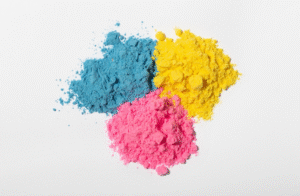+86 571 8659 2517
+86 180 5841 8258
info@zmuni.com

From January 16 to 23, 2026, 3 new cosmetic ingredients (NCIs) have completed notifications with China's National Medical Products Administration (NMPA). The technical requirements for the 3 NCIs mentioned above have not been disclosed, and they have not yet entered the safety monitoring period. Marubi's Fifth NCI Notification Gynura divaricata (L.) DC., a member of the Gynura genus in the Asteraceae family, is recognized in China as a medicinal and edible plant. It contains a range of bioactive constituents, including polysaccharides, flavonoids, alkaloids, and anthraquinones, and is associated with anti-inflammatory, hepatoprotective, and lipid-lowering activities. In 2010, China's former Ministry of Health (now the National Health

On January 15, 2026, China's State Administration for Market Regulation (SAMR) officially added a new health function to the Health Function Catalogue Allowed for Health Food Claims - Helps Maintain Bone and Joint Health (Alleviates Pain or Stiffness/Alleviates Cartilage Damage). This marks the first new function included in the catalogue following the release of the Administrative Measures on Directory of Health Food Raw Materials and Directory of Health Functions and the Detailed Rules on Implementation for Technical Evaluation of New Functions and Health Food with New Functions (Trial). The move represents a significant step in expanding health claims

From January 1 to 15, 2026, 11 new cosmetic ingredients (NCIs) have completed notifications with China's National Medical Products Administration (NMPA). The technical requirements for the 11 NCIs mentioned above have not been disclosed, and they have not yet entered the safety monitoring period. Of these, seven are botanical extracts, while the others include peptides, fermented ingredients, and biosynthesized ingredients. Ganoderma Leucocontextum Fruiting Body Extract Ganoderma leucocontextum, primarily found on the Qinghai–Tibet Plateau, was identified as a new Ganoderma species in 2015, named for its characteristic white flesh. Recent studies have advanced understanding of its chemical composition and pharmacological properties. The Notifer is a wholly-owned subsidiary of

On January 15, 2025, China's National Institute for Food and Drug Control(NIFDC) opened public consultation on three cosmetic standards, namely: Determination of Trivalent Chromium and Hexavalent Chromium in Cosmetics Determination of 1-hydroxyethyl-4,5-diaminopyrazole sulfate and other 10 kinds of ingredients in cosmetics Determination of Ethyl Lauroyl Arginate HCl in Cosmetics Stakeholders are invited to submit comments via the Cosmetic Standards Revision Management System (https://www.nifdc.org.cn/nifdc/bshff/hzhpbzh/hzhpbzhxt/index.html) by February 24, 2026.

On January 12, 2026, China's National Medical Products Administration (NMPA) issued three announcements (No. 1, No. 5, and No. 6 of 2026), formally incorporating 27 new and updated testing standards, covering the addition and revision of testing methods for 177 cosmetic ingredients, into the Safety Technical Standards for Cosmetics (2015 edition). The standards and methods covered by these announcements were previously released for public consultation between June and September 2025 and have now been formally adopted. Details are outlined below: Announcement No.1 of 2026 No. Standard/Method Type 1 Determination of Cannabidiol and Other 5 Kinds of

On January 12, 2025, China's National Medical Products Administration (NMPA) issued a new supplementary testing method: BJH 202502 Determination of Sudan I (CI 12055) and Other 3 Kinds of Ingredients in Cosmetic. This method specifies the determination of Sudan I (CI 12055), Sudan II (CI 12140), Sudan III (CI 26100), and Sudan IV (CI 26105) in cosmetic products. It is applicable to the quantitative determination of these dyes in liquid (aqueous and oil-based), cream/ointment, powder, solid, and wax-based cosmetic formulations. The release follows the October 2025 Sudan red incident, when several skincare products from major brands tested positive for Sudan

This article provides a comprehensive overview of key regulatory developments in the food sector in December 2025, both in China and internationally. It focuses on updates related to new food ingredients, food additives, health foods, and feed, aiming to offer timely and in-depth regulatory alerts for enterprises engaged in food import and export. China Food Regulatory Updates Chinese Mainland 🔘 China Three New Food Updates: Consultations on Eight New Food Additive Varieties In December, 2025, the China National Center for Food Safety Risk Assessment (CFSA) released draft public consultation documents covering eight new food additive varieties. The proposed additives include 3'-sialyllactose sodium

The global cosmetics regulatory environment continues to evolve. To help businesses stay updated with regulatory changes, ZMUni Compliance Center regularly releases a monthly recap of global cosmetics regulations. This article covers the regulatory developments related to cosmetics in China and globally in December 2025, with an emphasis on updates in cosmetic ingredients and cosmetic management, among other areas. China Cosmetic Regulatory Updates New Cosmetics Ingredients (NCI) In December 2025, 20 new cosmetic ingredients were notified with the China National Medical Products Administration (NMPA). They include: To learn more about these NCIs and their respective companies, check out the following episodes:
+86 571 8659 2517
+86 180 5841 8258
info@zmuni.com